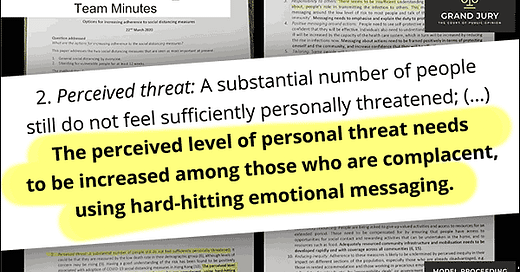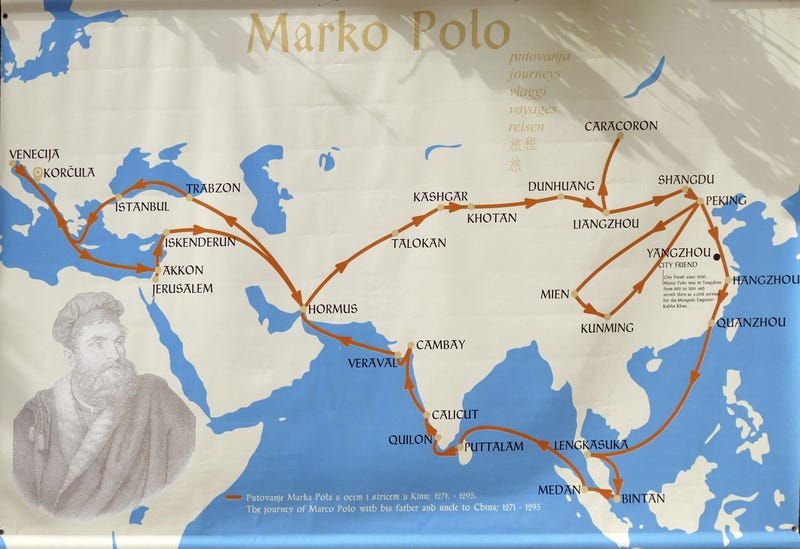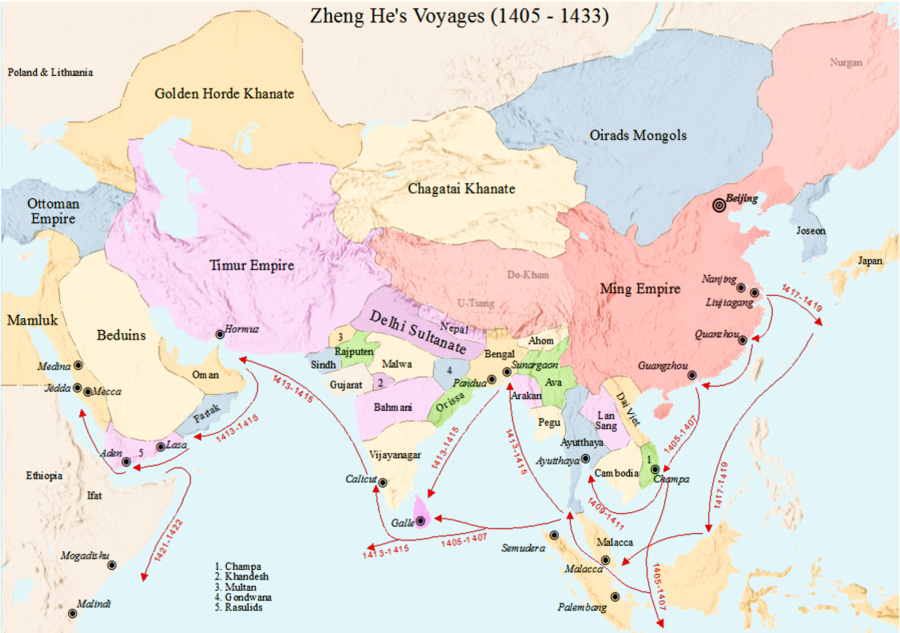From the time we are born, we hear sounds and repeat words, inflections, and emphasis. We have family experiences and then schools and religious influences as then media bombardment starting from a very early age. What is neglected is the validation of what we perceive on our own, independently of influences by others. What we ourselves recognize ought to have the most validity; however, what comes from outside influences can interfere with the reality we would otherwise accept as true.
Humans are social beings so there are benefits to fitting in, but there are also risks, the main one being that we may forfeit alignment with reality. This is a tricky issue so let me start by suggesting that to some extent, we are all ethnocentric.
For instance, there are many different cultures in the world, and we identify as belonging to a specific group. This may give us a national identity or religious identity or perhaps a racial identity. We speak a certain language, wear clothing that is typical for our clan, celebrate holidays in a specific manner, and eat foods that are heavily influenced by local customs. Think for a moment whether you eat flat bread, leavened bread, rice, potatoes, noodles, or cassava as the staple in your diet. Do you drink cow’s milk or coconut milk? Or perhaps milk from a goat or camel? How do you make your coffee or tea, and what do you serve with the beverages?
Who makes the important decisions? Is it the most senior member the household? The alpha male? A counsel of elders? An extended family? The breadwinner?
At some point, we start school. Indoctrination becomes very rigid because we are to learn not just the basics of reading, writing, and arithmetic, but we learn to repeat and regurgitate what we are taught. This formative part of our lives goes on for years and years. We learn history, including that the victor writes the history. Is the other side told? Are we not still debating the facts of the Crusades? Of the World Wars?
We belong to a particular religion, usually the same religion as our parents. There are many stories relating to that religion, but are we taught mythology or facts? For example, we may learn the Nicean Creed, but were we told that 75 books of the Bible went missing as a result of various church decisions over the years.
When I was young, we had newspapers and radio, but TV came into the home later. At some point, I realized that there were wire services like Associated Press and Reuters, but how much of the news is actually gathered by real journalists? Where are the boots on the ground? What is their level of connection with the facts?
In late 1966, I went to Vietnam with the State Department and actually gave press briefings. The journalists were given a printed sheet. They took it to the telegraph office so what the New York Times printed and what the Herald Tribune printed had the same source. None of the “journalists” had really done anything but collect paper from our office. No facts were verified, and the coverage of the situation had very little to do with reality. I am not saying I lied. I was working in the economics section and was therefore addressing issues such as the black market and how Vietnam could become self-sufficient . . . meaning it could generate the revenue to function independently of the U.S.
As a writer, one of my pet peeves is footnotes. This is particularly vexing when someone has something original to publish. Unless there is a precedent for what is written, the content may be dismissed because it is not recognized by academia.
This situation has gotten much worse with the advent of “citizen journalism”, a euphemism for “have mouse, will post”. There are endless people building online followings by right clicking and pasting. Sometimes the commentary is thought provoking, but mostly it is just like the echo chamber with slightly different acoustics depending on the channel.
The irony here is that we spend x number of years learning to parrot the texts used in schools, but the moment we graduate, we are supposed to think for ourselves. In reality, this may never happen because many people cannot even differentiate their thinking from what they heard from someone else.
Then, as noted, if we do think for ourselves, it is very we will not be taken seriously unless there is a precedent. Is conformity a club of clones?
Learning is actually a connect the dots exercise. We can hypothesize that there is an impression; and then something happens that reminds us of that impression, and we connect the new experience to the older dot. The more dots there are, the more nuances and potential for depth there is.
It becomes easier and easier to develop a repertoire when there are more dots. Take any discipline, and we easily see how this works. We may learn a little tune, but when we have heard many tunes and perhaps learned to play them on an instrument, the gist of the tune gets adding to the repertoire and even improvising might become second nature.
One of my favorite examples is that when writing my book on botanical cancer treatments, I seriously doubted that the herb mentioned in many old books was galangal. This member of the ginger family grows in Thailand, Southern China, and Indonesia. It is also found in other South and Southeast Asian countries, but it was a favorite of Hildegard of Bingen, and she lived before Marco Polo. I went to Bingen and asked about galangal. The nun took me to the kitchen to show me the root, and it was definitely galangal. She said the Abbey owns six galangal plantations in Thailand.
So much for the adventures of Marco Polo! Maybe he introduced spaghetti to the Western world, but when were the tomatoes added to the pasta? They came from South America and Columbus et al. came after Marco Polo.
It was just as bad on the Chinese end. Before Columbus, Admiral Zheng He headed seven expeditions. The first voyage, in 1405, consisted of 317 ships and 28,000 crewmen . . . making the Niña, the Pinta, and the Santa Maria quite small by comparison. There were so many linguists among those on board that a language institute was founded in Nanjing. To be fair, the routes taken by Zheng He followed the coastlines quite closely whereas Columbus sailed across a vast ocean, but the scale of the Chinese explorations was enormous and was not mentioned in any class I took, even in college where I majored in Asian Studies.
My concern is that as matters stand now, an international elite consisting of 15 enterprises controls almost all the press to which we are exposed. It is probably not fair to say that all belong to the same club, but they have an inordinate influence over what is broadcast. When they spin a certain story, it quickly becomes mainstream. Opposing views are denigrated as conspiracy theories until the truth can no longer be hidden.
By now, we should all know that the alphabet agencies often push a certain agenda and influence the editing that goes on behind closed doors. Most people have now heard the testimony before Congress of the pressures put on Facebook. The Twitter story is unraveling as we speak.
The spinning affects political views and our understanding of critical details of the so-called pandemic.
The temptation to influence people has probably existed since life began on this Planet. Whether we are talking about wars in heaven, struggles between good and evil, or attitudes based on class and position, there will always be those eager to win the contest to become the top influencer.
The difference between an advanced society and one in shambles is perhaps the choice of where we go for information and guidance. In a golden age, we might seek the counsel of a sage . . . whereas in today’s world, we are probably more likely to hear the clamor of mafioso types, some of whom may wear expensive suits. The question is who is the master of the puppet show?
I believe we are at a critical time in history. Personally, I am not worried about nuclear war, but I am concerned about the quest for global dominance and control. Some events strike fear into the hearts of humanity, but if the fear is intentionally propagated and used to manipulate, it is generated by the forces of evil. In my view, this has been the case with the pandemic.
Starting in July 2020, it became obvious that censorship was becoming rampant. How do I know? People subscribing using mainstream e-mail providers were not receiving my posts. I spent many months advocating change to a secure provider. I am including a link to current options:
Going way back, I used Hushmail. It seems to have disappeared as did Unseen.is. So, Protonmail is my third effort to communicate privately and securely. However, there are 16 other options mentioned in that link. It is almost certain that you are only hearing half the story if using a mainstream provider.
Once you are using VPN and a secure provider, you will have access to the half of the story that is not being shown.
In the meantime, I will share what I told someone else a few days ago. If you get your news online, try a variety of international channels. For example, with the pandemic news, some countries took a position that did not conform to WHO dictates. The most significant European country to act independently was Sweden. It adopted what was called a herd immunity policy. No schools were closed, no masks were mandated, and vaccines were optional. Initially, there were a number of cases in nursing homes, but this is more or less what one expects during normal flu season. The residents are usually suffering from multiple health issues and may be both heavily medicated and elderly. Norway marched to the drummer, but it has smaller nursing homes in more diverse locations so initially, the infection rate was a little lower than in Sweden, but this leveled off after a few months. In short, we could ask whether drastic precautions were necessary or if they even made a difference? In another 3-5 years, we will have a better answer to this question because we will be able to factor in the effects of vaccines . . . and hopefully also 5G deployments.
During the propaganda war, alternative treatments were marginalized, even criminalized, but reliable adverse event reporting was shrouded in excuses. Those who are not getting the news are missing a major part of the story.
When I want more than one view of what is happening, I visit numerous channels. If the news is the statement by the German foreign minister, the live video may be the same on all channels, but the commentary may vary.
Besides the schism between Fox News and CNN, there other options like Epoch Times, Democracy Now!, CGTN, Al Jazeera, France 24, DW, NHK World-Japan, Arirang, and many more. There are also some excellent commentators and lecturers: Hillsdale College, Jan Jekielek with American Thought Leaders, Lex Fridman, and many more. There are free speech platforms like Rumble. While there are some excellent videos on YouTube, it is censored so depending on what is being posted, the video may be removed and the poster may be deplatformed. If one is not aware of the severity of censorship, try to wrap your mind around what it means when I send a post to thousands of subscribers but only 3% ever receive the post, sometimes even less than 1%.
I was totally crippled by the inability to reach my subscribers. The question then is how can you know if you don’t even realize what is being blocked from reaching you? On what are you basing your understanding and decisions? When do you think the other side of the story will be worth hearing?
When I launched Substack, I posted the essay on Homo Borg Genesis and promised to write on the Echo Chamber “next” but then I decided to create a self-help program. Now, I have fulfilled that promise and the next two posts will be for paid subscribers and will take us one step forward with detoxification.
First posted on 26 January 2023
Copyright by Dr. Ingrid Naiman || All Rights Reserved
1 https://en.wikipedia.org/wiki/Zheng_He
2 https://www.forbes.com/sites/katevinton/2016/06/01/these-15-billionaires-own-americas-news-media-companies/?sh=5dc095e5660a
3 https://stopworldcontrol.com/jury/







